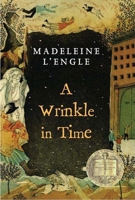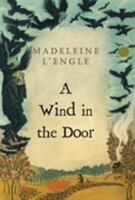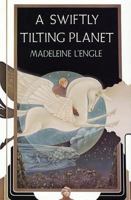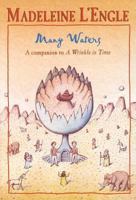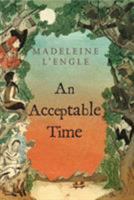The Beauty of Exploring Poetry
Even when it doesn't come naturally
By William Shelton • April 27, 2023
How fitting, right, and proper it is that April is the U.S. National poetry month. In this "…morning has broken…" season when life reaffirms itself through new fledged green on the trees, and flower buds bursting, all of us to some degree are moved to lyric verse. Birds are singing, and the occasional tornado not-withstanding, nature is in harmony with man. Indeed, it is rumored that to see the great city of Paris, France in any other month but April is a diminished experience. I would add Venice to that list. But, with all the glory of spring on stage before us, how do we ever find the time to read poetry? The late author Gore Vidal said that when his generation of post-World War II writers burst on the scene they displaced poets as the darlings of the literary world, though his friend Allen Ginsberg might disagree. The talents of Robert Frost were still in high enough demand in 1961 for John F. Kennedy to ask that he recite a poem at his inauguration. Thanks to S.E. Hinton, in her breakout novel The Outsiders, Frost's poem "Nothing Gold Can Stay" has been endeared to the hearts of many high school students.
As a reader, and an avid one at that, I struggle to apply the same level of zeal to poetry as I have my more preferred topics, such as historic fiction, or biography. In most cases I would rather read Xenophon than Whitman. Even though every April, when the lilac bushes in my lawn are thronged with flowers, I find myself quoting, "When lilacs last in the dooryard bloomed…" My reluctance to apply myself to poetry is mostly due to the complexity of understanding the text.
One cannot simply read poetry, it must be studied, pondered, and even then is open to interpretation, which to me is maddening. I, who grew up reading the memoir of William Alexander Percy, in fact his Lanterns on the Levee is still one of my indispensable books, could make neither heads nor tails of his poetry. His home in Greenville, Mississippi was the cradle which nurtured great Twentieth Century authors, such as Langston Hughes, Shelby Foote, William Faulkner, Hodding Carter, and Walker Percy, so if these noteworthy artists found meaning and inspiration from his work and presence, then surely I was just missing something. I found the same to be true with the work of Dame Edith Sitwell, a highly entertaining lady, who once told an interviewer that her hobby is "silence" so that people don't ask her impertinent questions. Reading her poetry, to me, is like translating cuneiform tablets: you know that there is verity and value to the text, but it is a mystery.
Crossover writers, such as Poe, Shakespeare, and Shelley help in deciphering the thrust of their poetic work. A reader can cross reference the poetry with the style and subject matter of their other work. Likewise, there are poets such as Maya Angelou whose words are so weighted with meaning and emotion that they bluntly communicate their message. Truly she began her journey as a caged bird, and learned from life how to sing. Plus, her recipe for a caramel cake is equally outstanding as her writing. How many of the songs which sustain us through the hills and dales of life began as poems? Certainly, "..mine eyes have seen the glory…" so familiar to most Americans, began as the mid-night jottings of a woman whose sleep was disturbed by the tramping of soldiers' feet outside her window. Every child should have the wisdom and understanding of Shel Silverstein to help guide them through the wonderment and confusion of youth. There are people around the world who genuflect at the very name of Elizabeth Barrett Browning, and her words frequently adorn tombstones. Many are equally devoted to Sylvia Plath. Beneath the oil painting of my paternal grandmother hangs a small brass plaque with a quote from Stephen Vincent Benet's Pulitzer winning epic poem "John Brown's Body." How wonderful that we have the beautiful words of poets to brighten the memories of those long gone. Another highly quotable epic poem is the Rubaiyat of Omar Khayyam. In fact, one of my favorite novels, So Red the Rose by Stark Young (with whom Robert Frost quarreled when they were both professors at Amherst College) takes its title from the Rubaiyat.
One of the many manifestations of genius by J.R.R. Tolkien is the creation of poems and songs which he attributed to the many races of creatures which populate his novels. It is one thing for us to draw upon our emotions and lives to craft verse, but for entire civilizations manufactured from whole-cloth imagination to be endowed with poetry is miraculous. Not to mention the downstream inspiration of the poetry of Middle Earth (and perhaps Mordor) upon writers who came later. Certainly, the lyrics of popular songs, and the writing of authors such as Stephen King, were influenced by the language and music of Tolkien's universe.
Like any genre of literature, poetry is evolving. Often the style of modern music inspires the cadence and text of modern poetry. The old forms are being broken, rhyme is not married to verse, and the jarring angle of an out of place word is equally welcome as melody. Indeed, the words of Gore Vidal in many ways ring false. New poets, like the teeth of the mythical dragon once sown, spring forth in multitude every day. The words of their lived experience, thus communicated through their musings, will be the inspiration of the next century. Their style will be the songbook of generations unborn, and provide solace for millions whom we shall never know.
No matter how challenging it can be to understand its meaning, it is clear that poetry infuses our lives. It colors and flavors all languages, and the most memorable words recorded through time are more often than not poetry. During the glory that is April, take the time to explore poetry. I trust that you will find inspiration in its form, even if the words often perplex.











